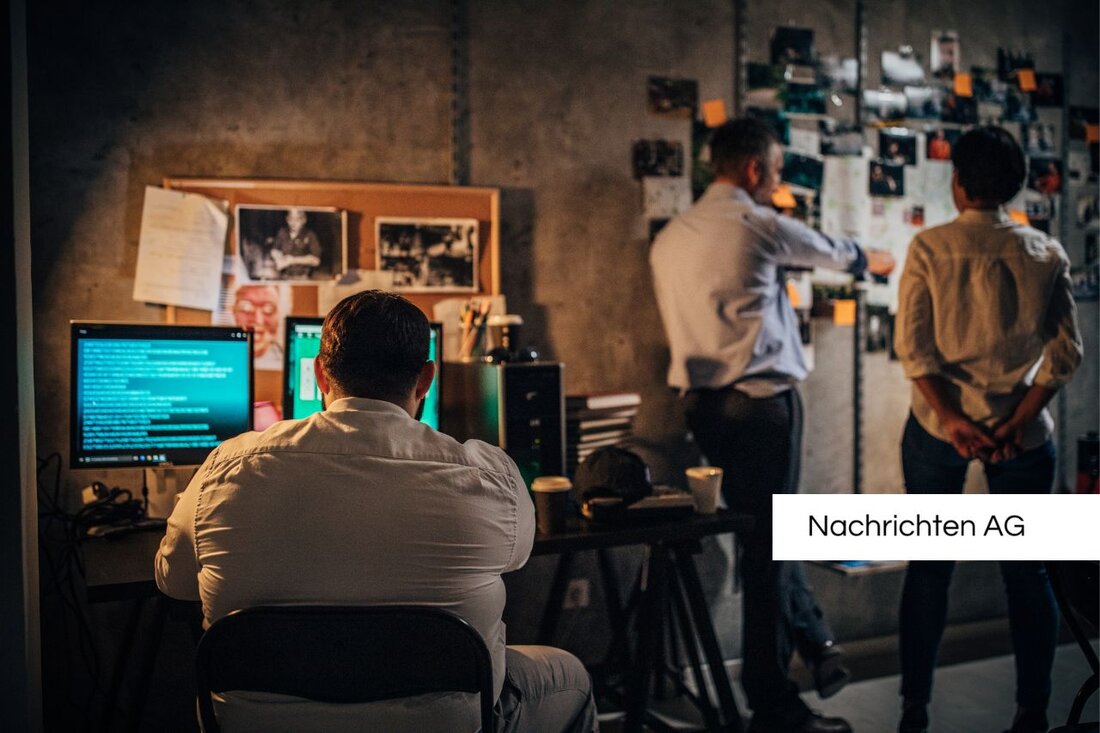Safe cities: Fire brigade Schult in vital decontamination!
On May 9 and 16, 2025, successful training courses for decontamination for fire brigade in St. Pölten took place to ensure security and operational readiness.

Safe cities: Fire brigade Schult in vital decontamination!
On May 30, 2025, a comprehensive training for decontamination in fire brigade took place in the St. Pölten-Stadt section. The protection of the emergency services, the population and the environment is top priority in operations with dangerous fabrics. Therefore, professional decontamination measures are essential. The Section Fire Brigade Command (AFKDO) St. Pölten-Stadt carried out a theoretical lecture on May 9, 2025, which treated the basics of decontamination and gave a deep insight into the functioning of the special decorative container. Here, operational principles, protection levels and hygiene measures were also discussed. Particular attention was paid to the interdisciplinary cooperation of various emergency organizations.
The goal of this training was to convey a sound knowledge of decontamination to the participants. On May 16, 2025, the practical part of the training took place, in which the participants built up the decorative road and learned their handling. This practical application enabled the fire brigade members to actively deepen and consolidate their knowledge. The training was organized by section clerk Schaurzstoff, VI David Rausch, while BSB Florian Ziegelwagner was responsible for developing the training concept.
tasks and areas of application of the decorative units
decorative units are specially trained for the decontamination of people and devices that have been contaminated with dangerous fabrics. Their tasks are complex and include:
- self -protection to prevent contaminated emergency services leave the danger area.
- Decontamination of people, including the cleaning of emergency services and civilians.
- Setting shower tents or mobile decorative streets.
- decontamination of devices to prevent the spread of pollutants.
The areas of application of these units are diverse and include dangerous goods accidents, chemical accidents, as well as biological or radiological operations. Especially in the case of fires with dangerous fabrics, they play a central role in avoiding the deportation of pollutants and protecting the environment.
decontamination concept and technical equipment
According to the fire brigade service regulation 500 (FWDV 500), a three -stage decontamination concept is used:
- level I: Emergency contamination of unprotected people.
- level II: Standard decontamination of emergency services in protective clothing.
- Level III: Complete disclosure and hygienic showering after taking off the protective clothing.
The Device Dekontamamation Personal (GW Dekon P) device truck is specially equipped for the decontamination of people. It contains seven roll containers and can be built up by six emergency services in a short time. The equipment includes a shower tent, lining tents and a small one -person dining cubic cabin for size. Fresh water is stored in two 1000 liter stock containers, while a water instantaneous heater provides warm shower water.
The mobile system can be operated self -sufficient for over five hours and has a throughput of around 50 people per hour. In addition, a photoionization detector (PID) enables the continuous detection of chemicals, which is important to increase occupational safety. bbk.bund.de reports that the water -bearing fittings of the system of the drinking water regulation correspond to.
The training courses for decontamination in St. Pölten-Stadt are an important step to ensure the operational readiness of the fire brigade members in the pollutant sector and help to increase safety when operating with dangerous substances. Overall, it turns out that the theoretical and practical parts of the training merges harmoniously in order to optimally prepare the emergency services for their tasks. fireworld.at indicates that such training courses for the effective use of Decorative units are.

 Suche
Suche
